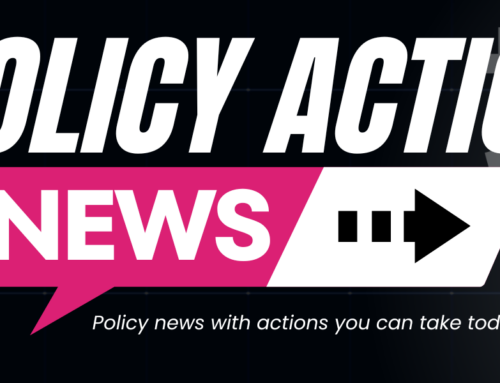PWN-USA Statement for National Black HIV Awareness Day
by Vanessa Johnson and Waheedah Shabazz-El
Black Americans have endured an exceptionally brutal history which complicates our present and challenges our future. Torn from our native land–the continent that gave birth to humankind–we have been systematically dehumanized to serve as chattel in a foreign land. Even now, the United States offers Black Americans citizenship only at a substandard quality of life and without an opportunity for reparations and healing. Given this history, and our understanding of HIV as an epidemic that thrives on inequality and injustice, an HIV epidemic among Black Americans should hardly come as an unexpected surprise.
National Black HIV/AIDS Awareness Day (NBHAAD) is anything but a celebration. It is a grim reminder of how far we still have to go, and how hard we still have to fight. Black lives will matter when our nation confronts and conquers the hypocrisy of those who claim to cherish all life yet place greater value on fetuses than on living, breathing Black children and adults.
Throughout this epidemic, HIV has shined a bright spotlight on the wide range of injustices confronting Black Americans: intergenerational poverty, mass incarceration, institutionalized racism, inadequate access to health care, inferior educational opportunities, disproportionate targeting by police, a racist criminal justice system, and more. If there is anything that the HIV community has universally accepted, it is the understanding that HIV is more than just a medical condition. The federal response to this epidemic serves as a very window into the soul of one of the richest nations on earth — a nation which continually leaves Black Americans in its wake, drowning in the torrents of a largely preventable disease. Merely half a century after the end of segregation, in a nation whose economic basis is founded on Jim Crow laws and which turns a blind eye to the systemic injustices facing people of color, we cannot feign surprise that there continues to be an epidemic of HIV among Black Americans and that Black people living with HIV face worse health outcomes on average.
Although some progress has been made, Black Americans are still fighting for access to the most fundamental human rights – including water, food, employment, education, and the right to vote. We continue to be locked out of meaningful civic participation, fair representation and decision-making from the local level to the highest halls of federal government.
This rings particularly true for Black American women, whose plight and leadership in this epidemic continue to be minimized. Despite the advances made to reduce new infections, Black American women still acquire HIV at an alarming rate–representing 60% of new infections among women–and remain the majority of women living with HIV in this country. Although Black women comprise nearly two-third of the domestic HIV epidemic among women, Black women living with HIV are still not a priority in the newly-released National HIV/AIDS Strategy (NHAS 2020).
As an advocacy organization, Positive Women’s Network-USA (PWN-USA), the premier voice for women living with HIV in the United States, will not stand idly by in silence while women of African descent continue to bear the brunt of this disease and policymakers’ indifference to its effects on our community. We demand that our government invest in effective HIV prevention for Black women, as well as in women-centered, whole-person, universal health care that addresses the barriers to engagement and retention in care for women with HIV. Medicalization of HIV will continue to fail in addressing the needs of women living with and vulnerable to HIV when they do not have adequate access to basic resources to stay healthy.
The HIV epidemic in this country will end when America commits to the underlying conditions which enable HIV to thrive, such as racism and poverty. We demand a laser focus on upholding the full health, rights, and dignity of Black women living with HIV over the next five years of the National HIV/AIDS Strategy’s implementation.



